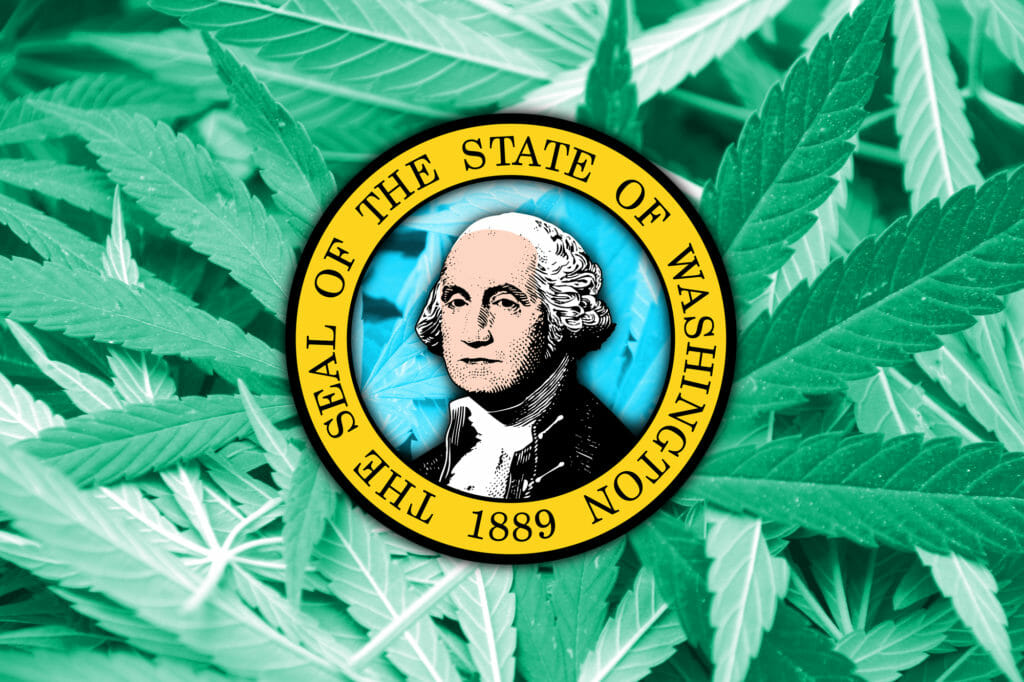More than a decade after Washington voters joined Colorado in making history by being the first to legalize recreational marijuana, the state’s cannabis market remains plagued by outdated and restrictive policies that continue to set it apart—unfavorably—from other legal states.

Washington was among the first to embrace adult-use legalization with the passage of Initiative 502 in 2012. Retail sales officially launched in July 2014, signaling the start of a new era. Yet while other states have since built upon their regulatory frameworks to expand access and meet consumer demand, Washington’s laws remain surprisingly rigid—especially when it comes to personal cultivation, delivery services, and consumer freedoms.
Today, Washington is one of only two legal marijuana states in the entire country that still makes it a felony for adults to grow even a single marijuana plant at home. That stands in sharp contrast to nearly every other legal state, many of which allow home cultivation of four to six plants per household, if not more. In Washington, getting caught with a home grow operation—even if it’s just for personal use—can lead to a felony conviction, up to five years in prison, and a fine of $10,000.
This year, there was a flicker of hope when a bill to legalize home cultivation advanced out of its first committee. But despite initial support and a strong grassroots push, the proposal failed to move forward before a key legislative deadline, effectively killing the bill for the 2025 session. Advocates have vowed to try again in 2026, but frustration continues to grow over what many see as an indefensible position for a state that helped lead the legalization movement.
Washington is also lagging behind in cannabis delivery. Unlike states such as California, Michigan, Massachusetts, and New York—which allow licensed businesses to deliver cannabis directly to consumers—Washington prohibits all forms of marijuana delivery, including for medical patients. Even states with stricter overall policies have embraced delivery, including California, which passed a law requiring cities to allow medical cannabis deliveries regardless of local bans.
Meanwhile, some legal states have gone even further to modernize access. In Arizona and Nevada, for instance, consumers can purchase cannabis through drive-thru windows—an option that became particularly popular during the pandemic and has remained in place as a convenience measure. Washington, by contrast, still requires all marijuana transactions to take place in person inside a licensed retail location, limiting flexibility for consumers and patients alike.
In addition to its restrictive policies on home grow and access, Washington also imposes the highest cannabis tax rate in the country. The state levies a 37% excise tax on all retail marijuana sales, on top of standard sales tax, making the overall cost to consumers the steepest nationwide. While this tax structure generates significant revenue for the state—amounting to hundreds of millions annually—it also drives up prices for consumers and contributes to a thriving illicit market, where untaxed products can be obtained more cheaply.
Possession laws also remain outdated and harsh in Washington. While adults 21 and older can legally possess up to one ounce of marijuana flower, the penalties for exceeding that limit are among the most severe in the country. Possessing more than 1.5 ounces is classified as a felony, punishable by up to five years in prison and a $10,000 fine. This stands in contrast to many other legal states that have raised possession limits or downgraded penalties for excess amounts to civil infractions or misdemeanors.
The result is a legal framework that increasingly feels out of step with the rest of the country. While Washington’s cannabis industry continues to generate hundreds of millions of dollars in tax revenue annually, it does so within a system that offers fewer rights and protections to consumers than many of its peers. Even states that legalized recreational marijuana years after Washington are now offering broader access, more consumer-friendly rules, and greater legal protections.
As more states move toward legalizing marijuana—and as federal reform inches closer—Washington’s position as a leader in cannabis policy has faded. Without action to address home grow, delivery, possession limits, and retail access, the state risks falling further behind in an industry it helped to pioneer.







